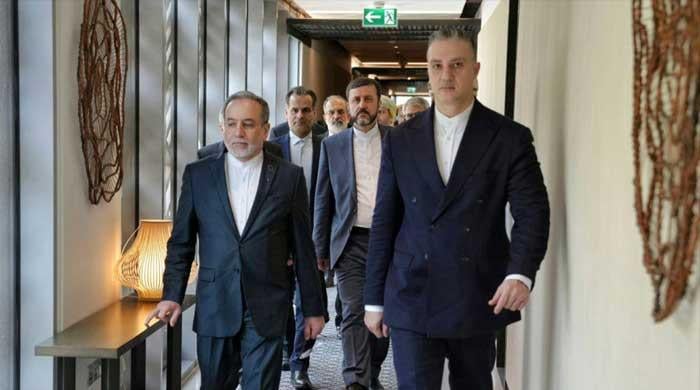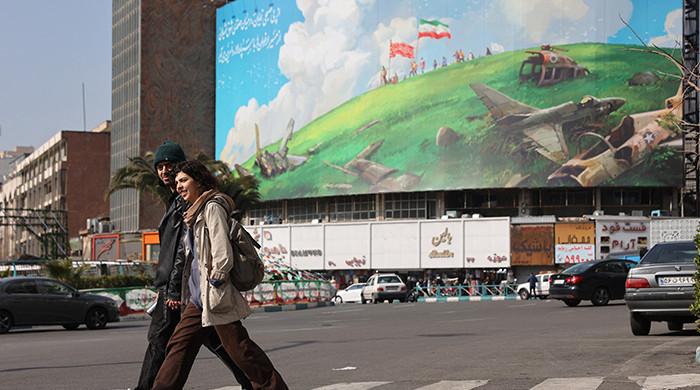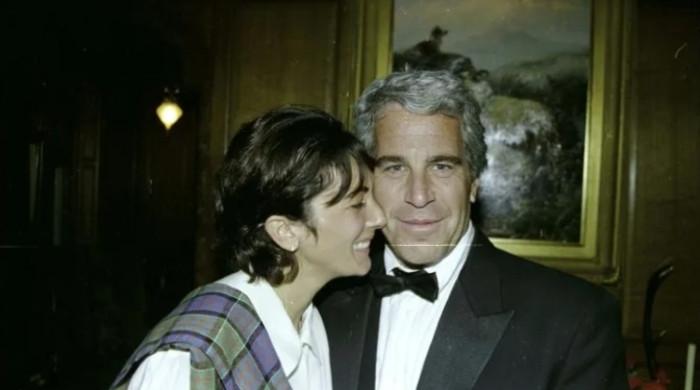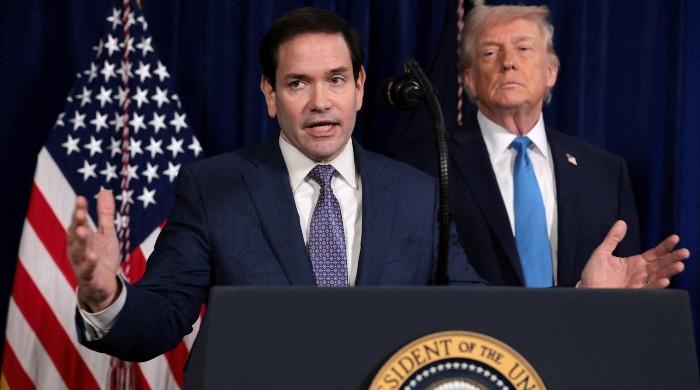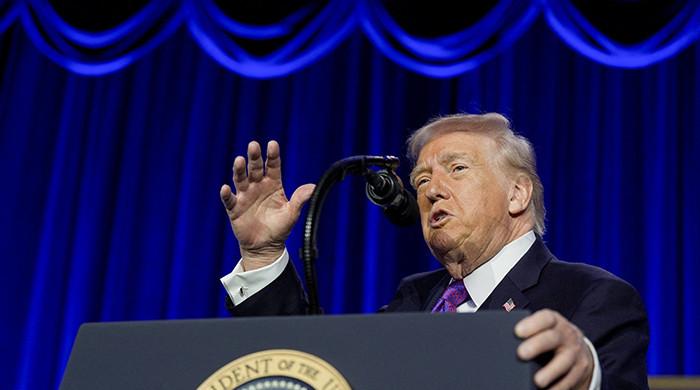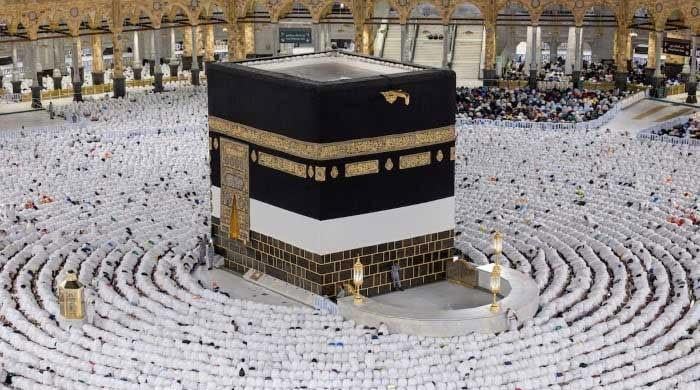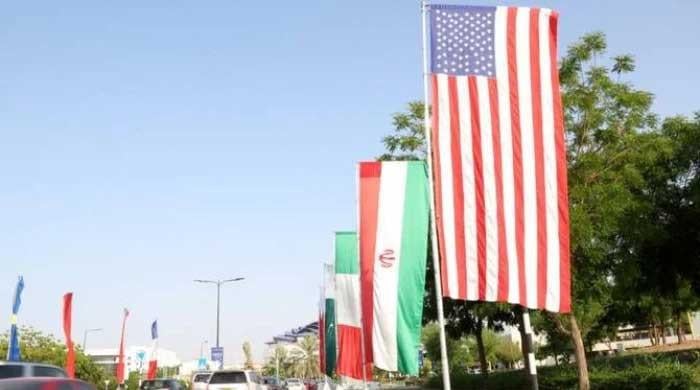US rejoins UN Human Rights Council, years after walk-out
Council is tasked with promoting, protecting human rights worldwide, addressing violations and making recommendations
October 14, 2021
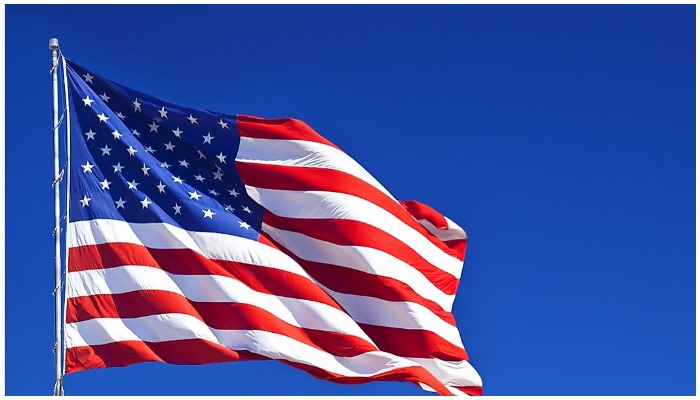
- The United Nations General Assembly elected 18 new members of the UN's top rights body.
- The council is tasked with promoting and protecting human rights worldwide, addressing violations and making recommendations.
- Under former president Donald Trump, the United States quit the council in 2018, accusing it of hypocrisy and obsession with haranguing Israel.
GENEVA: The United States returned to the UN Human Rights Council on Thursday, three-and-a-half years after its dramatic walk-out — time seized upon by China to assert wider influence.
The United Nations General Assembly elected 18 new members of the UN's top rights body, with countries kicking off their three-year council term from January 1.
Though member states were chosen in a secret ballot, the election was a non-contest, with 18 candidate countries standing for 18 seats.
Beyond the United States, the other states elected are: Argentina, Benin, Cameroon, Eritrea, Finland, Gambia, Honduras, India, Kazakhstan, Lithuania, Luxembourg, Malaysia, Montenegro, Paraguay, Qatar, Somalia, and the United Arab Emirates.
The council is tasked with promoting and protecting human rights worldwide, addressing violations and making recommendations, but the election of Eritrea again raises the issue of having authoritarian regimes on the body.
Under former president Donald Trump, the United States quit the council in 2018, accusing it of hypocrisy and obsession with haranguing Israel.
But when Washington returns in January under President Joe Biden, it will come face to face with an emboldened China that took advantage of the US absence to flex its muscles.
"The Chinese and all those who are fundamentally against human rights as Europeans understand them... oppose economic, social and cultural rights. It is not a new trend, but it is undeniably growing stronger," one European diplomat told AFP.
According to another, "China's objective is simple: to destroy the concept of the universality of human rights and to assert a vision consistent with its political system".
In recent years, China and its partners, including Belarus and Venezuela, have wheeled out joint statements supporting Beijing´s actions in Hong Kong, Xinjiang and Tibet, and denouncing "human rights violations" in Western countries, including against indigenous Canadians.
Fed up
Faced with growing polarization, some fear that Washington´s return will reinforce the trend and see the council dominated by pro-US and pro-Chinese rivalry.
Marc Limon, executive director of the Universal Rights Group think tank in Geneva, said the United States has "basically focused on just one thing, which is China", since re-engaging with the council earlier this year as an observer.
Those attacks and Beijing's reprisals are "sucking the oxygen out of all of the other important work of the Human Rights Council", he said.
"A lot of countries are fed up because they don't want to see the multilateral system being held hostage by these big geopolitical power games."
He urged Washington to broaden its focus to win back support from developing countries that had warmed to Beijing during the US absence.
China's ambassador to the UN in Geneva, Chen Xu, told reporters on Wednesday that he hoped Washington would "conduct a constructive dialogue and try not to make human rights a political vehicle" once back on the council.
Electoral 'facade'
The council in Geneva is made up of 47 member states elected by the UN General Assembly in New York.
A third of the council is elected every year, and countries can only serve for two consecutive three-year terms.
The membership is split proportionally by geographic regions.
Eritrea's election has especially raised eyebrows.
In June, Mohamed Abdelsalam Babiker, the new UN special rapporteur on the rights situation in Eritrea, painted a bleak picture in his first report to the council.
There was no sign of improvement, he said, pointing to arbitrary and incommunicado detention, inhumane prison conditions, lack of basic freedoms, and indefinite military service, where conscripts are subjected to forced labour and sexual violence.
Non-governmental organisations accuse the regional groups of stitching up a "legitimising facade" rather than a genuine contest at the council, by presenting the same number of candidates as vacant seats.
The executive director of the non-governmental organization UN Watch said the elections were designed to weed out the world's worst rights abusers.
But "oppressive regimes like China, Cuba, Libya, Russia and Eritrea routinely win the election, and the stamp of international legitimacy", said Hillel Neuer.
The Geneva director of Human Rights Watch, John Fisher, told AFP the regions had a "responsibility" to make sure their candidates met the minimum standards, pointing the finger at countries like Eritrea, Cameroon and the United Arab Emirates — all elected on Thursday.




